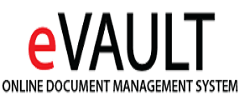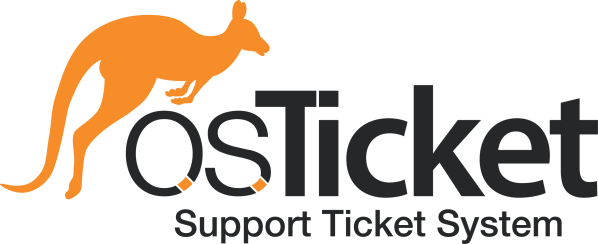Top Customer Service Softwares
Customer Service software plays a crucial role in modern business operations, streamlining communication between companies and their clients. This software enhances customer experience by facilitating efficient, organized interactions. Its tools include ticketing systems, live chat, and help desk support, enabling quick resolution of issues. By automating routine tasks and analyzing customer feedb... Read More
222 companies found
Product Description
Intercom is a powerful customer communication platform designed to help businesses build stronger relationships with their clients. It's perfect for software as a service (SaaS) companies looking to streamline customer interactions and offer personalized support. Intercom combines several tools into one easy-to-use platform, making it simple for companies to connect with their users. By using Int... Read More
Users
- • No Data
Industries
- • No Data
Market Segment
- • No Data
Product Description
SightCall is a software solution designed to help businesses improve their customer support and field service operations by providing real-time video support capabilities. Imagine this: you have a customer with a complex problem, and instead of trying to explain it over the phone or through emails, they can show you exactly what's happening through a live video call. This makes it easier and quick... Read More
Users
- • No Data
Industries
- • No Data
Market Segment
- • No Data
Reputation
Product Description
Maintaining a strong online reputation is crucial for businesses today, especially in the digital-first world. Reputation software provides an easy way for companies to manage, monitor, and enhance their online reputation. This software is designed to help businesses gather and analyze customer feedback, respond to reviews, and improve their overall brand image. Think of it as a tool that gives b... Read More
Users
- • No Data
Industries
- • No Data
Market Segment
- • No Data
Product Description
eVAULT is a software solution designed to simplify how businesses manage, protect, and access their data. At its core, eVAULT ensures your important information is always secure and readily available when you need it. Whether you're a small business owner or part of a large enterprise, eVAULT scales to meet your specific needs without any hassle. With eVAULT, you can forget about the complexities... Read More
Users
- • No Data
Industries
- • No Data
Market Segment
- • No Data
Product Description
LiveChat is a straightforward tool designed to help businesses communicate directly with their customers in real-time. Whether it's answering questions, solving problems, or offering guidance, LiveChat provides an easy way to stay connected with your audience when they need you most. The platform integrates seamlessly with your website, allowing visitors to reach out through a chat window that p... Read More
Users
- • No Data
Industries
- • No Data
Market Segment
- • No Data
Product Description
osTicket is a customer support and ticketing system designed to make it easy for businesses to manage and respond to service requests. With osTicket, you can streamline the process of receiving, tracking, and responding to support queries from your customers, whether they come through email, web forms, or phone calls. Key features of osTicket include ticket management, where each customer inquir... Read More
Users
- • No Data
Industries
- • No Data
Market Segment
- • No Data
Enghouse Interactive
Product Description
Enghouse Interactive is a notable provider of customer interaction solutions designed to help businesses improve their customer service and relationships. Their software offerings focus on enhancing the way companies manage and interact with their customers across various communication channels. Whether it's through phone calls, emails, live chat, social media, or text messages, Enghouse Interacti... Read More
Users
- • No Data
Industries
- • No Data
Market Segment
- • No Data
Product Description
Gorgias is a customer support tool specifically designed to help online businesses manage their customer service more effectively. Whether you're running a small e-commerce shop or a larger online store, Gorgias aims to streamline your customer interactions all in one place. What sets Gorgias apart is its ability to integrate seamlessly with various sales platforms like Shopify, Magento, and Big... Read More
Users
- • No Data
Industries
- • No Data
Market Segment
- • No Data
Product Description
Crisp is designed to help businesses improve their communication with customers. It's a software tool that combines live chat, email, and messaging into one easy-to-use platform. This means businesses can talk to their customers in real-time, answer questions, and solve problems quickly, all from a single dashboard. The neat part about Crisp is how it brings all your customer interactions into on... Read More
Users
- • No Data
Industries
- • No Data
Market Segment
- • No Data
Returngoods
Product Description
Returngoods is a straightforward software solution designed to streamline the process of handling product returns for e-commerce and retail companies. This software is geared towards businesses looking to manage their returned products with greater ease and efficiency. One of the standout features of Returngoods is its ability to automate key tasks that are often repetitive and time-consuming. ... Read More
Users
- • No Data
Industries
- • No Data
Market Segment
- • No Data
What are the key features to look for in Customer Service software?
When evaluating Customer Service software, it’s important to identify features that foster efficiency and improve customer satisfaction. Understanding these features helps in selecting a solution that aligns with business needs. Consider the following key elements:
Multichannel Support
Customer Service software should facilitate communication through various channels such as email, live chat, social media, and phone. This allows businesses to engage with customers on their preferred platforms, providing a seamless experience.
Ticketing System
An effective ticketing system streamlines inquiry management by organizing customer interactions into tickets. These can be tracked, managed, and resolved efficiently, ensuring a timely response to customer queries.
Automation
Automation tools in Customer Service software enhance productivity. Features like automated responses and ticket routing reduce manual workloads, allowing teams to focus on complex issues. Automating repetitive tasks speeds up service delivery.
Knowledge Base
A comprehensive knowledge base empowers customers to find solutions independently through self-service. Detailed articles, FAQs, and video tutorials can reduce the number of incoming inquiries, freeing up support teams to handle more intricate problems.
Analytics and Reporting
Insightful analytics and reporting features provide data-driven insights into customer interactions. Performance metrics, such as response times and satisfaction ratings, help in evaluating service effectiveness and identifying areas for improvement.
Integration Capabilities
Customer Service software should integrate seamlessly with other business tools such as CRM, ERP, and e-commerce platforms. Integration ensures data consistency and allows staff to access comprehensive customer information without switching systems.
Collaboration Tools
Internal collaboration features facilitate better teamwork. Options like shared inboxes and internal notes enable support teams to work together effectively, leading to quicker and more consistent responses to customer inquiries.
Customization
Customization options allow businesses to tailor the software to their unique needs. Adjusting workflows, templates, and user interfaces ensures the system aligns with specific operational requirements and branding guidelines.
Security and Compliance
Ensuring data protection is a priority in Customer Service software. Look for solutions that offer robust security features, such as encryption and user authentication, while also complying with relevant regulations like GDPR.
Scalability
Scalability is essential for adapting to business growth. The chosen Customer Service software should accommodate an increasing volume of customer interactions and evolving business needs without sacrificing performance.
Mobile Support
Mobile support features are critical for providing assistance on-the-go. A mobile-responsive interface or dedicated mobile app enables support teams to access tools and information from any location, ensuring consistent service delivery.
Customer Feedback
Incorporating customer feedback mechanisms allows businesses to gauge satisfaction and understand client needs better. This feedback can be used to refine service strategies and make informed decisions.
By focusing on these key features, businesses can select Customer Service software that supports operational efficiency and enhances customer experiences, ensuring that they deliver top-notch service across all customer touchpoints.
How can Customer Service software improve response times for support teams?
Streamlined Communication Channels
Customer Service software enhances response times through organized communication channels. It centralizes queries from various platforms such as email, chat, and social media into a unified interface. This centralization allows support teams to respond promptly without toggling between different applications. The result is significant time-saving, especially when dealing with a high volume of customer interactions.
Automated Request Routing
Effective Customer Service software utilizes automated request routing. This feature directs customer inquiries to the relevant support agent or department based on predefined criteria. By eliminating the need for manual assignment, it reduces response delays. Automated routing ensures that customer issues are handled by the most suitable team member, further boosting response efficiency.
Canned Responses
To handle common inquiries swiftly, Customer Service software often provides a feature called canned responses. These are pre-written replies for frequently asked questions, enabling support agents to answer common queries with a few clicks. This feature not only reduces the time taken to compose responses but also ensures consistency and accuracy in the information provided to customers.
Integration with CRM Systems
Integrating Customer Service software with Customer Relationship Management (CRM) systems can improve response times by providing agents with immediate access to customer histories and preferences. This context enables support teams to resolve issues more quickly, as they can tailor their responses based on detailed customer data. Access to this information prevents unnecessary back-and-forth with customers, thus enhancing the speed of service.
Knowledge Base and Self-Service Portals
A feature inherent in many Customer Service software solutions is the ability to create and manage a knowledge base or self-service portal. By offering customers a repository of frequently asked questions, tutorials, and guides, support teams can reduce the number of incoming queries. When customers solve their issues independently, it frees up support agents to focus on more complex inquiries, leading to faster response times for those who need direct assistance.
Real-Time Collaboration Tools
Customer Service software often includes real-time collaboration tools. These enable team members to work together on complex issues, sharing insights and solutions without delay. By facilitating instant communication among support agents, the software helps resolve customer issues with greater agility. Real-time collaboration can often be the key to quick decision-making and problem-solving.
Performance Analytics and Monitoring
Another component of Customer Service software is performance analytics. It provides insights into the team's response times, identifying bottlenecks and areas for improvement. Support managers can use these analytics to optimize workflows and assign resources more effectively. This proactive approach ensures that customer inquiries are addressed promptly, maintaining high response standards.
Prioritization and Ticket Management
Ticket management systems within Customer Service software allow support teams to prioritize queries based on urgency or importance. This ensures that more critical issues receive immediate attention, optimizing the team's response efforts. By systematically managing the queue of inquiries, support agents can focus on resolving tasks in a structured manner, improving overall response times.
What are the benefits of using Customer Service software for small businesses?
Enhances Customer Interaction
Customer Service software plays a pivotal role in streamlining customer interactions. Small businesses can manage customer queries through multiple channels, all from a single platform. This consolidates communication and reduces the chances of missing important interactions. By employing such software, small businesses can increase their ability to deliver quick and consistent responses, enhancing the overall quality of customer service.
Boosts Efficiency
One of the most significant benefits of Customer Service software is the increased efficiency it offers to small businesses. It automates routine tasks like ticket assignments and follow-ups, which reduces the workload on customer service representatives. This allows them to concentrate on more critical customer issues, thereby improving response times and customer satisfaction. Automation also reduces human error, ensuring more consistent service delivery.
Provides Insights Through Analytics
Customer Service software offers valuable analytics and reporting features. Small businesses can track key performance indicators such as response times, resolution rates, and customer satisfaction scores. These insights empower business owners to make informed decisions, identify areas for improvement, and allocate resources more effectively. Understanding customer needs and behavior can lead to more personalized and effective service, fostering improved customer loyalty.
Facilitates Team Collaboration
Another benefit of Customer Service software is its ability to promote better teamwork. It provides a centralized hub where team members can access customer information and ticket histories. This transparency ensures everyone is on the same page and can collaborate to resolve issues efficiently. The software often includes features like internal chat and notes, allowing team members to share insights and solutions, leading to faster problem resolution.
Enhances Customer Experience
Improving the customer experience is crucial for any small business. Customer Service software enables personalized interactions by storing detailed customer histories, preferences, and previous interactions. This knowledge allows agents to anticipate needs and offer tailored solutions, which can significantly enhance the customer experience. Satisfied customers are more likely to remain loyal and provide valuable referrals, contributing to business growth.
Scalability
Customer Service software is designed to grow with the business. For small businesses, this means they can start with basic functionalities and scale up as their needs evolve. This flexibility is crucial as it allows small businesses to adapt to increasing customer demands without the need to overhaul their systems. It supports business growth while ensuring consistent service quality at every stage.
Cost-Effective Solution
Investing in Customer Service software can be cost-effective for small businesses. By automating repetitive tasks and improving operational efficiency, businesses can save on costs related to labor and time. Furthermore, enhanced customer satisfaction can lead to higher retention rates and increased revenue, offsetting the initial investment in the software.
Centralized Data Management
The ability to manage customer data from a single location is another advantage. Customer Service software keeps information organized and easily accessible, which helps in maintaining comprehensive customer profiles. This centralization ensures that customer interactions are based on accurate and up-to-date information, leading to more effective problem-solving and reduced resolution times.
How does Customer Service software help in tracking and managing customer inquiries?
Customer Service software plays a vital role in efficiently tracking and managing customer inquiries. In an age where timely and effective communication is paramount, this type of software helps in streamlining the process, ensuring that businesses can handle a high volume of customer interactions with precision and care.
Centralized Communication
Customer Service software centralizes communication by collecting inquiries from various channels like email, chat, social media, and phone calls. This centralized approach allows customer service teams to view all inquiries in one place, reducing the likelihood of missing any customer requests. By having a singular access point, team members save time and enhance response accuracy.
Efficient Ticketing Systems
A crucial element of Customer Service software is its ticketing system. When a customer raises an inquiry, the software automatically creates a ticket with a unique ID. This ticket tracks the inquiry from submission to resolution, ensuring that nothing falls through the cracks. By prioritizing inquiries based on urgency or topic, customer service representatives can address needs quickly and effectively.
Automated Workflows
Automation within Customer Service software is a powerful ally. The software can automate routine tasks such as assigning tickets to the right department, sending acknowledgment emails, or categorizing inquiries by type. This reduces the manual workload on service representatives, allowing them to focus on resolving issues rather than administrative tasks. Automation enhances the tracking process, ensuring smooth transitions as inquiries are handled and resolved.
Seamless Collaboration
One of the strengths of Customer Service software is facilitating seamless collaboration among team members. It provides a shared platform where customer service agents can collaborate on complex inquiries, share insights, and resolve questions collectively. This collaborative aspect ensures that customers receive the most accurate and helpful responses, improving satisfaction and brand reputation.
Real-Time Tracking and Monitoring
Real-time tracking and monitoring are vital features embedded in Customer Service software. They allow managers to oversee the status of customer inquiries at any given moment. With these tools, managers can identify bottlenecks, reassign resources as needed, and ensure that all inquiries are progressing towards resolution. Real-time insights empower businesses to maintain efficient customer service operations and uphold high service standards.
Data Analysis and Reporting
Advanced analytics and reporting capabilities are integral to Customer Service software. By tracking and examining data on inquiries, businesses can gain valuable insights into customer behavior, preferences, and common issues. This information not only aids in managing current inquiries but also helps in forecasting future inquiries, optimizing staffing, and refining service strategies to better meet customer needs.
Personalization and Customer History
Customer Service software often includes features that allow agents to access customer history and personalize interactions. By having a comprehensive view of past interactions and purchases, service agents can tailor responses to individual customer needs. Personalization fosters a sense of understanding and appreciation, further enriching the customer experience.
In summary, Customer Service software is indispensable in tracking and managing customer inquiries. It enhances operational efficiency through centralized communication, efficient ticketing systems, automated workflows, seamless collaboration, real-time tracking, data reporting, and personalized service. These elements work together to ensure that customer service teams can promptly meet the needs of their customers with professionalism and accuracy.
What types of analytics can be obtained from Customer Service software?
Customer Service software provides a range of analytics to help businesses enhance their support operations. By analyzing these metrics, companies can gain insights into customer interactions, improve service and optimize resources. Below are different types of analytics obtainable from Customer Service software:
Customer Interaction Metrics
Customer Service software typically offers insights into customer interactions such as the volume of inquiries, channels used for communication, and the average response time. Understanding these metrics helps businesses evaluate how customers are interacting with their support team and identify trends over time.
Response and Resolution Times
Analytics related to response and resolution times allow businesses to measure how quickly their team addresses customer queries. Common metrics include the average time it takes to respond to a ticket and the average time to resolve an issue. Monitoring these metrics helps ensure timely customer service and identifies potential bottlenecks in the process.
Customer Satisfaction Scores
Gathering customer feedback through Customer Service software is critical. Using surveys like CSAT (Customer Satisfaction Score) or NPS (Net Promoter Score), businesses can collect ratings and comments following support interactions. Analyzing these scores provides direct insight into customer satisfaction levels and areas requiring improvement.
Agent Performance Metrics
By tracking individual agent performance, businesses can evaluate efficiency and effectiveness in handling customer interactions. Metrics often include the number of tickets resolved, first contact resolution rate, and customer feedback received. These analytics help in identifying training needs and rewarding top-performing agents.
Ticket Volume and Backlog Analysis
Customer Service software can analyze ticket volumes over time to identify peak periods. It helps in efficiently managing support resources and prevents ticket backlog. Businesses can also assess the nature of tickets to understand recurring issues and address them proactively.
Channel Usage Statistics
Understanding which channels customers prefer for support is crucial. Analytics provide insights into the distribution of customer inquiries across different channels—such as email, live chat, phone, or social media. This helps in optimizing resources and ensuring that popular channels are well-supported.
Trend Analysis and Forecasting
Trend analysis tools help in observing patterns and predicting future customer service needs. By studying historical data, businesses can forecast demand for support and prepare accordingly. This can guide staffing decisions or investments in technology to better handle anticipated inquiries.
Sentiment Analysis
Sentiment analysis involves evaluating customer feedback and interactions to assess their emotional tone. Through natural language processing, Customer Service software can gauge whether a customer's sentiment is positive, negative, or neutral. This gives businesses a better understanding of customer emotions and helps in tailoring responses accordingly.
Overall, Customer Service software encompasses a myriad of analytics that offer deep insights into support operations, enabling businesses to refine their strategies and improve customer satisfaction. By leveraging these insights, companies can ensure more efficient and effective customer service outreach.
How can Customer Service software integrate with other business tools?
Integration of Customer Service software with other business tools is vital for streamlined operations. This powerful synergy helps businesses maintain a unified view of customer interactions, ensuring a seamless service experience.
1. CRM Systems Integration
One of the most common integrations for Customer Service software is with Customer Relationship Management (CRM) systems. By syncing these tools, companies can obtain a centralized database of customer information. This allows customer service representatives to access comprehensive data, including purchase history and prior interactions, directly from their service platform. Consequently, this sync enhances personalized communication.
2. Help Desk and Ticketing Tools
Customer Service software can integrate with help desk and ticketing systems. This integration enables automatic ticket creation and updates whenever a customer reaches out for support. It minimizes manual data entry errors and ensures customer issues are tracked and resolved efficiently. Also, it provides a consolidated view of all service requests.
3. Communication Platforms
Integration with communication platforms such as email, chat, and social media messengers is essential. Such integration allows customer service teams to manage all inquiries from a single interface, irrespective of the channel. It supports real-time responses and helps in managing varied communication channels through a unified system.
4. Collaboration Tools
Integrating with collaboration tools facilitates better coordination among customer service team members. By linking Customer Service software with platforms like project management and collaboration tools, teams can better manage tasks related to customer inquiries. This results in faster issue resolution, as teams can assign, track, and collaborate on tasks effortlessly.
5. E-commerce Platforms
For businesses that operate online stores, integrating Customer Service software with e-commerce platforms is crucial. This connection allows customer service teams to access order details, process returns, or handle order inquiries with ease. Such integration provides a seamless shopping experience and ensures customer satisfaction by allowing instant access to transaction information.
6. Analytics and Reporting Tools
Integrating Customer Service software with analytics and reporting tools aids in the collection of service metrics. This integration allows organizations to measure performance indicators, identify trends, and make data-driven decisions. Managers can gain insights into the effectiveness of customer service operations and pinpoint areas for improvement.
7. Marketing Automation Systems
Marketing automation tools can be linked with Customer Service software to coordinate outreach efforts. This collaboration ensures customers receive consistent messages across various channels. It also helps track how service interactions influence customer loyalty and purchase behavior. By aligning marketing and service efforts, companies can drive customer engagement.
8. Enterprise Resource Planning (ERP) Systems
Enterprise Resource Planning (ERP) systems can work alongside Customer Service software to enhance inventory management and service delivery. Integration ensures that customer service teams have access to real-time inventory data, enabling them to provide accurate availability information to customers, streamlining the order fulfillment process.
By facilitating seamless connectivity with an array of business tools, Customer Service software plays a pivotal role in not only managing customer interactions but also in enhancing overall business efficiency.
What are the cost considerations when choosing Customer Service software?
When selecting Customer Service software, understanding the cost considerations is essential to align with your business goals and budget constraints. Here are some key factors to keep in mind:
1. Pricing Model
Customer Service software often comes with various pricing models, including subscription-based, pay-per-user, or tiered pricing structures. The pricing model should align with your company’s financial planning and anticipated growth. Subscriptions can range from monthly to yearly commitments.
2. Scalability Costs
As your business grows, you may need to scale your Customer Service software. Evaluate how adding more users, features, or increasing data storage will affect costs. Some platforms may offer scalable options at discounted rates as opposed to linear increases in cost.
3. Implementation and Onboarding Expenses
Initial setup and onboarding can incur significant costs. This includes the time and resources needed for implementation, training staff, customization of the software to suit your operations, and possible consultant fees. Understanding these upfront costs helps avoid unexpected financial burdens.
4. Maintenance and Support Charges
Ongoing maintenance, software updates, and support services can alter the total cost of ownership. Some Customer Service software providers include these services in the subscription fee, while others may charge separately. Consider the frequency of updates and the level of customer support offered.
5. Integration Costs
If the Customer Service software needs to integrate with existing systems such as CRM or ERP platforms, consider any additional expenses. Integration may require purchasing connectors or relying on IT resources for custom solutions, influencing the overall cost.
6. Customization and Add-on Features
Evaluate the necessity of customized solutions or additional features beyond the standard offerings. While some software solutions offer flexible customization, these often come with extra costs. Consider what add-ons are essential versus those that can be deferred to control expenses.
7. Hidden Fees
Scrutinize the service terms for hidden fees, such as charges for exceeding customer interaction limits, API access, or premium reporting features. A comprehensive understanding of all potential costs avoids unwelcome financial surprises.
8. Return on Investment (ROI)
Consider the potential ROI from investing in Customer Service software. The software should ideally streamline processes, improve customer satisfaction, and enhance productivity, eventually offsetting the investment and ongoing costs. Evaluate how soon and how well the software delivers value compared to its cost.
9. Trial and Evaluation Costs
Many providers offer demo versions or trial periods allowing evaluation without immediate commitment. While sometimes free, some trials require initial investment. Assessing software during this period helps gauge suitability and financial impact without long-term commitment.
By carefully considering these cost aspects, businesses can make informed decisions while selecting Customer Service software, ensuring it meets their functional needs without exceeding budgetary limitations.









